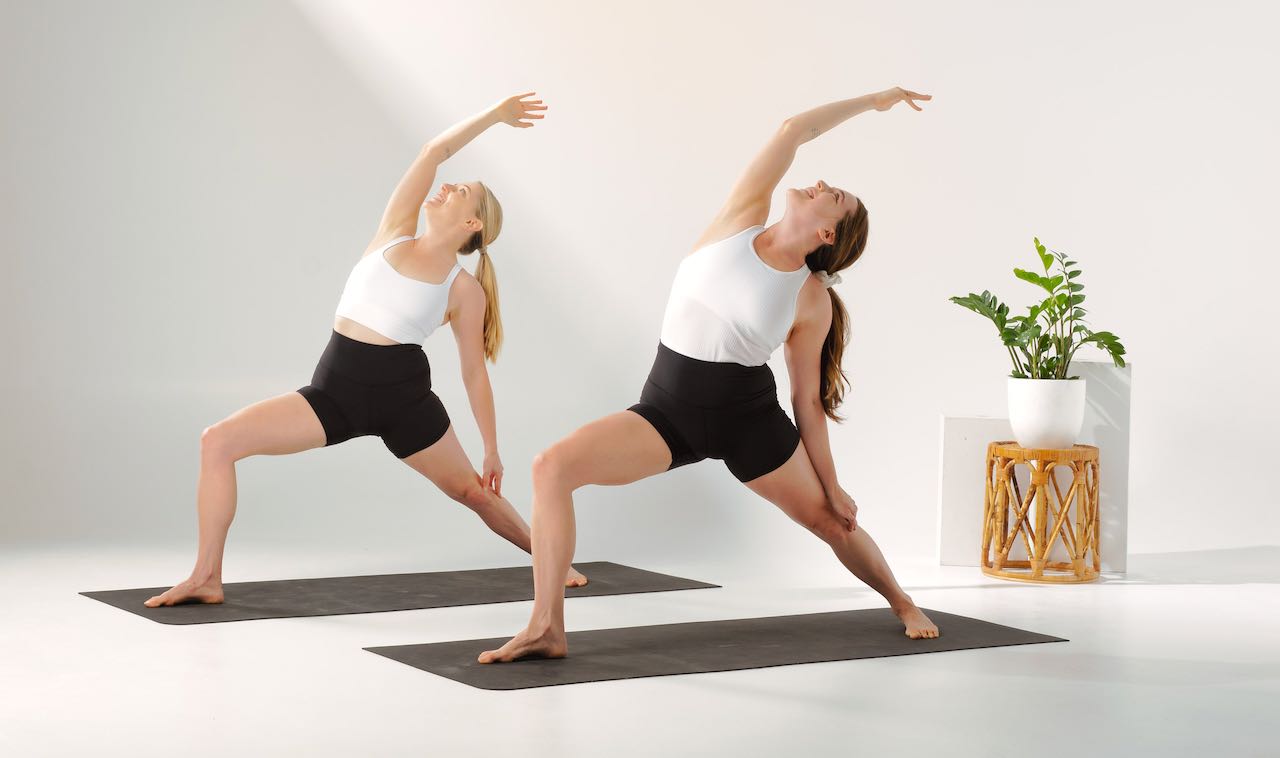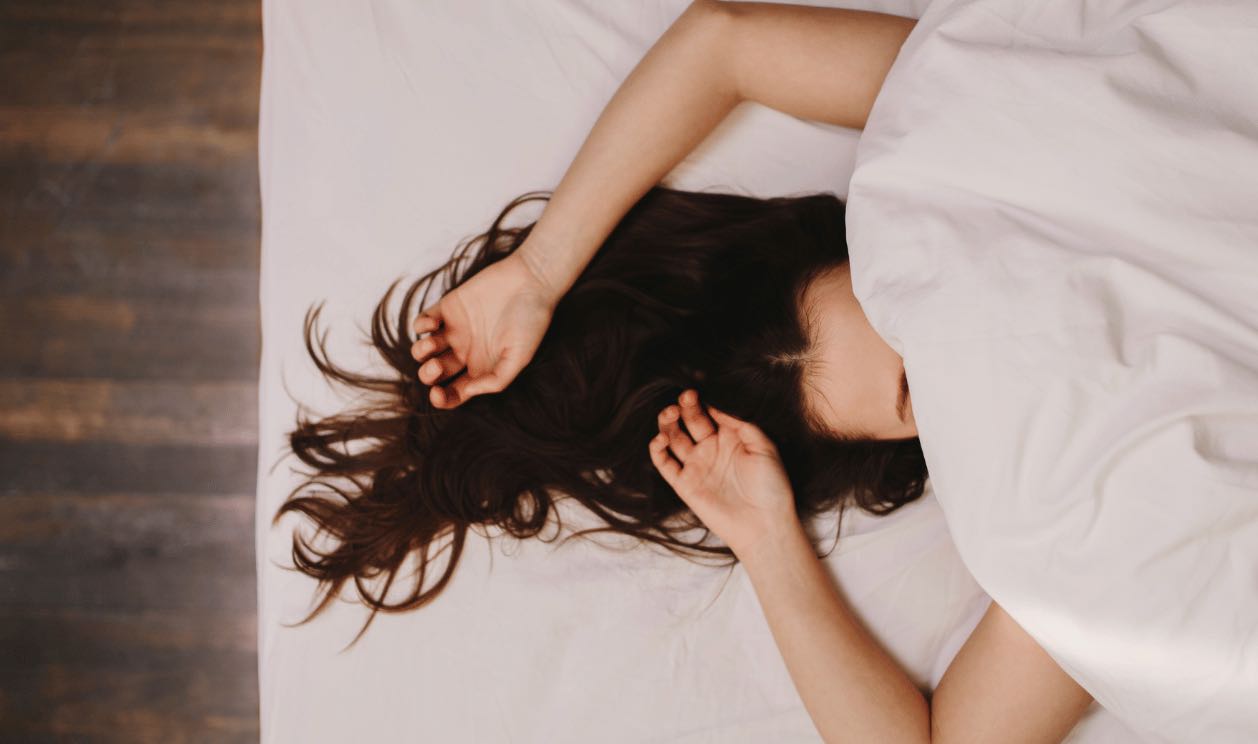This is a guest post by writer and slow-living advocate, Alejandra Leyvaa.
Are you having trouble sleeping? Getting sleepy at random times of the day? Or is drowsiness getting in the way of your daily activities? Then you probably have sleep deprivation, and hey, you’re not alone!
More and more people are not getting enough sleep around the world.
It is quite scary if you think about it because getting enough sleep is detrimental to human function, and its lack and deprivation significantly threaten our health and safety. In this article, we will explore the importance of healthy sleep habits and what habits you can practice for a good night’s sleep in 2024.
Why developing healthy sleep habits is important
If you don’t sleep enough, you probably end up tired, sluggish, sleepy and unfocused for the next day. The reason is simple: your body has not regained enough energy at night to last you for the next day. And it’s not only the lack of sleep—poor sleep quality, like tossing, turning, and waking up at random hours, can also result in the same effects.
Developing healthy sleeping habits helps restore body energy and strength overnight. Getting enough sleep helps improve mood, focus and mental function in your daily activities. For seniors, getting enough sleep will help prevent falls and enhance cognitive brain function.
According to a study from the National Library of Medicine, healthy sleep in older adults is critical for better mental well-being and overall health and reduces the risk of hospitalisation.
Healthy sleep habits you should practice in 2024
If you’re still struggling with getting better sleep in 2024, here are some healthy habits you can practice:
Set a sleep schedule—and follow it
Like how we feel hungry at almost similar times of the day, the same goes for sleep. Sleep patterns are as important as sleeping, as our body recognizes when to repair and recover. Our body has an internal clock in the hypothalamus that signals us when to go to bed based on our sleeping habits.
To create or fix your sleep schedule, you can:
- Set alarms at similar times of the day
- Have a fixed sleep duration
Create pre-bedtime rituals
Your sleep quality isn’t only defined by how long or deep your sleep is. A huge part of sleep quality is attributable to how you prepare your mind, body, and surroundings so your mind can recuperate at night.
A ritual before bedtime need not be something grand. Some rituals you can practice are:
- Drink a warm cup of tea. Many teas, especially herbal ones, are great at promoting good sleep. These include low-caffeine green tea, chamomile, magnolia and lavender tea.
- Take a warm bath. Studies suggest a warm bedtime bath before sleep helps lower your core temperature, giving a circadian sleep signal.
- Listen to music. Listening to relaxing music is a great way to empty the mind before sleep. Many listen to classical and instrumental music, while some listen to rain or forest audio clips to relax.
- Reading before sleep. There are many benefits to reading, and one of them is improved sleep quality. This is unsurprising as children are often read to before sleep, which can be associated with better sleep when they grow old. Reading before sleep can ease stress, relieve insomnia, and promote longer sleep. Here’s a great book list!
Set a cutoff time for gadget use
How often have you found yourself lying in bed and ready for sleep, just to grab your phone one last time to check, and suddenly—two hours have passed?
That’s not surprising because many of us don’t know that the blue light from electronic devices reduces melatonin levels in the body, which controls our sleep cycle. The result? Difficulty in falling asleep.
According to a study, 98.1 percent of participants who used at least one type of electronic device two hours before bed reported poorer sleep quality than those who did not.
Get adequate exercise
Improving your lifestyle is a core part of getting quality sleep and overall health. After all, good sleep is nothing with a poor diet and no exercise.
Simply put, adequate exercise and proper food intake significantly impact the quality of your sleep. Doing 30 minutes of exercise daily will improve sleep later that night.
Carla, Co-founder of the MerryBody App says focus on what you can do. Your exercise doesn’t have to be an hour every day, if you’ve got 10 minutes spare start with a 10-minute at-home Pilates or Yoga class! Focus on progress and consistency, not perfection”. Try this 5 Day 10 Minute Class Challenge!

Be mindful of what you eat
Your eating patterns and food significantly affect the quality and duration of your sleep.
In general, avoiding heavy meals two to three hours before bedtime is suggested.
If you’re feeling a bit snacky before sleep, why not try some of these?
- Oatmeal
- Herbal tea
- Fruits, like berries
- Unsalted nuts or seeds
- Sleep edibles (in countries that allow them)
Make sure your room is clean and comfortable
Good quality sleep is closely tied to your sleeping environment, and this includes making sure that your bedroom is kept clean and comfortable to rest in.
Keeping your bedroom clean and comfortable for a good night’s sleep means you:
- Invest in high-quality (within your means) and comfortable mattresses
- Ensure your bed is clean and made after waking up
- Make sure your room is free of any unpleasant odour
- Find the right temperature for you
- Make sure your room is free of anything that might distract you from good sleep
Avoid long naps during the day
Short lunch naps are not a problem—in fact, they help you become more productive for afternoon work. However, frequent and long naps during the day simply mean that you are not getting enough sleep at night, and thus, the cycle of irregular sleeping and napping patterns continues unless you make an effort to correct your sleep and nap schedule.
Simply put, limiting your naps during the day will significantly help in getting a good night’s sleep, and if you really need to nap, remember these few points:
- Take a nap early in the afternoon—around 1 to 2 PM.
- Make it short, at most 30 minutes—and set an alarm.
Some people have difficulty waking up during a nap, so finding the perfect way how to wake yourself up is very important to make sure you get just the right amount of nap to replenish your energy, but not too much that makes it difficult for you to sleep at night.
Developing healthy sleeping habits does not only start when you lie in bed and hit your head on your pillow. Your lifestyle, physical activities, diet, environment and overall health are crucial in ensuring you get a good night’s sleep.

